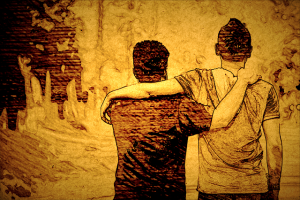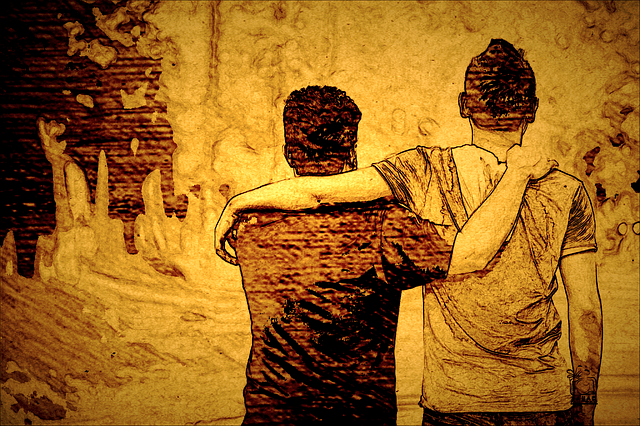
I didn’t realize it at first, but I’m sure it was there.
After countless days of coming home to them passed out on the couch, after so many bright mornings lost to drunken tirades, after so many little moments turn into major splinters, you slowly see what has been creeping in that dark space for what it is: the feeling of powerlessness.
I felt it when I called her thirty times after midnight. Her last text expressed a desire for relief through suicide. I felt it every time I spoke with them and the person I loved was lost from their face, their voice, their movements.
I saw it in my friend when their father demanded respect but dealt disrespect — lying to their family, lying to family friends, lying to himself. Every lie he told was just one more brick in the wall, a wall being built around the relationship between him, his wallet and his vice.
I saw it in another group of friends when one of the most happy, fun-loving of us all was turned into a hospital regular. We never knew where she was, where she was going to be, or how to help her.
As I watched my friends, my cherished ones, lose themselves, I felt like I lost myself. I laughed less and loved less. And I spoke to friends who study psychology, and did a lot of reading. I began to understand addiction and the power it has over people.
One of the main powers relies in the difference between physiological and psychological addiction. Psychological addiction, which means you’re addicted to the happiness or feeling that comes from the drug. Then there is physical addiction, which means your body’s cells have become reliant on the chemicals in the drug.
With physical addiction comes withdrawal symptoms like shakes, nausea and body aches. Getting over an addiction is hard, but being physically dependent on the drug makes it that much harder.
I saw this in the actions of my friends and their families. They would try to stand up from their addiction and quit one day; they were quick to relapse because their body was working against them. The American Addiction Centers lists relapse rates at 40 to 60 percent.
Within these relapses and attempts to overcome addiction, I found myself watching — the actions of an addict — grappling with the person I knew.
And with that grappling I’ve come to one conclusion: as those close to people dealing with addiction, we can’t be an accomplice to their addiction. While it may be difficult to make them face their actions or stand against them, we have to stand with them by standing against the addiction.
Take solace in those around your loved one. Find love together and unite with them in opposition to the addicts behavior. Vocalize your opposition, take action, maybe even pose an intervention. Give your loved one a reason and a support system to work on. Inspire them to get help.
It may put you out of your comfort zone, but there is strength in vocalizing your perspective. There is strength in opposing the addicts behavior. And through that strength, hope is nurtured.
Living with an addict, you may feel like you have lost your power, but together you will find your strength.
Because the truth is that addiction doesn’t always lead to a clear conclusion.
My old girlfriend has since grown into her own and decreased her reliance on substance. She has two kids, a loving boyfriend, and we still talk all the time.
My friend’s father and mother have since divorced. After taking care of her father, my friend won’t talk to him and doesn’t want to. He has tried to redeem himself in her eyes, but he still has a long way to go.
And my friend hasn’t changed. She’s gone to rehab multiple times. Recently she went out of touch with us for two weeks. We found her, and she’s safe for now, which is a blessing.
My friend told her father, just like I told my girlfriend and we told our friend; we told them we loved them, but they were hurting us and we wanted them to change. We told them we weren’t going to give up, but they had to make the decision to help themselves.
Without your support and their decision, the addicts addiction will always win.



1 Comment
Thx for this…I am living with a roommate with Bpd. She is not an addict but I can relate to the chaos.